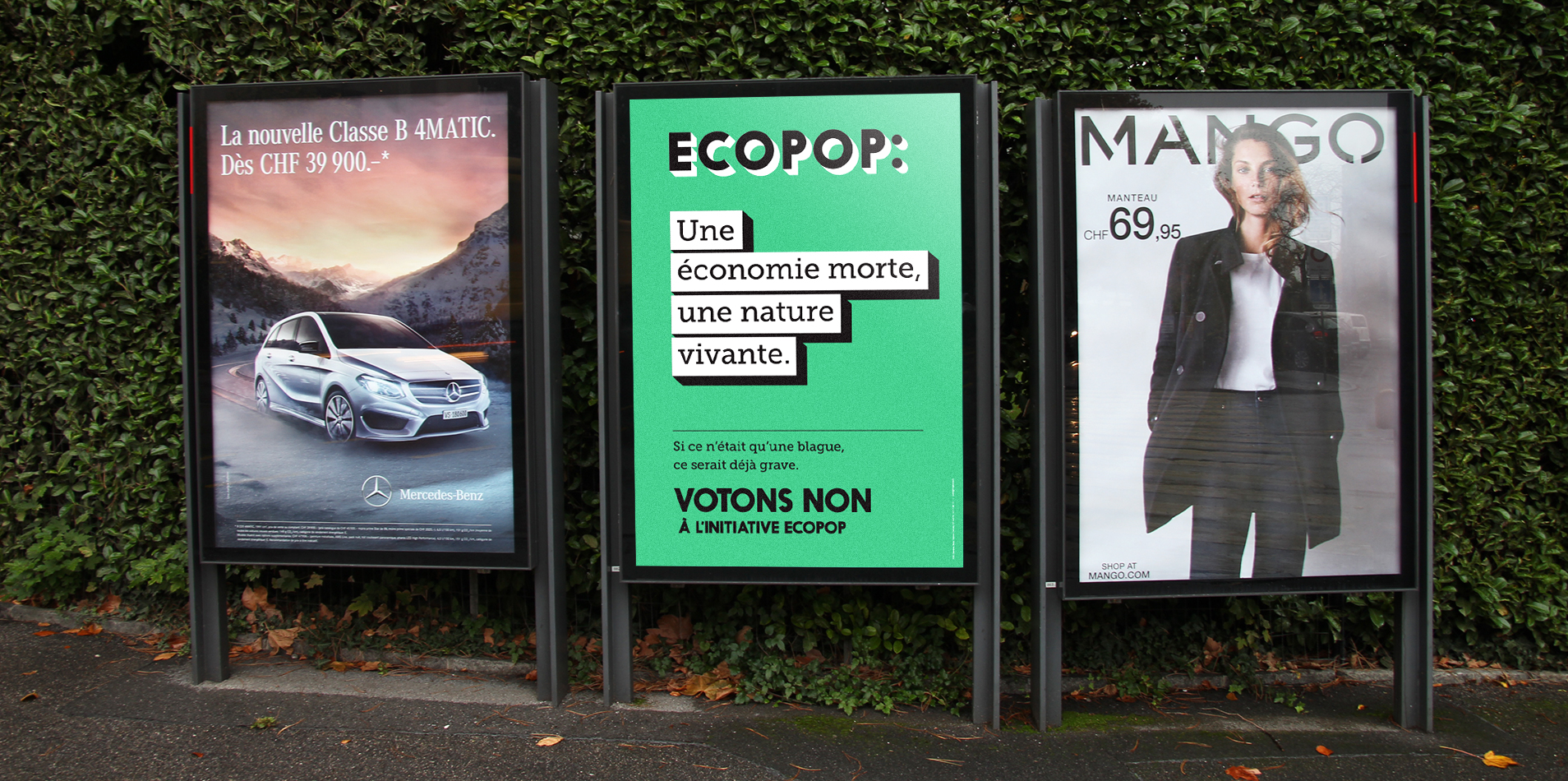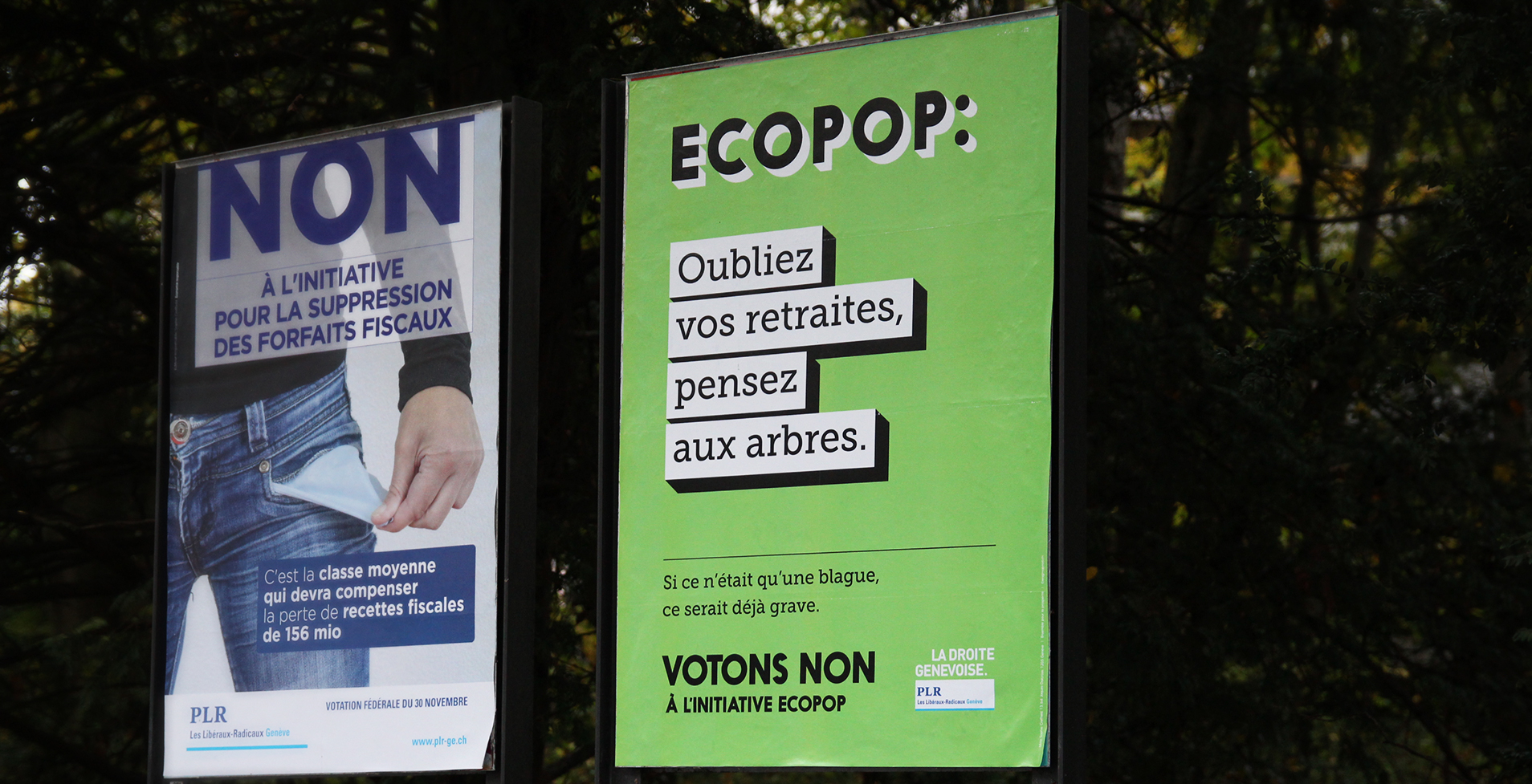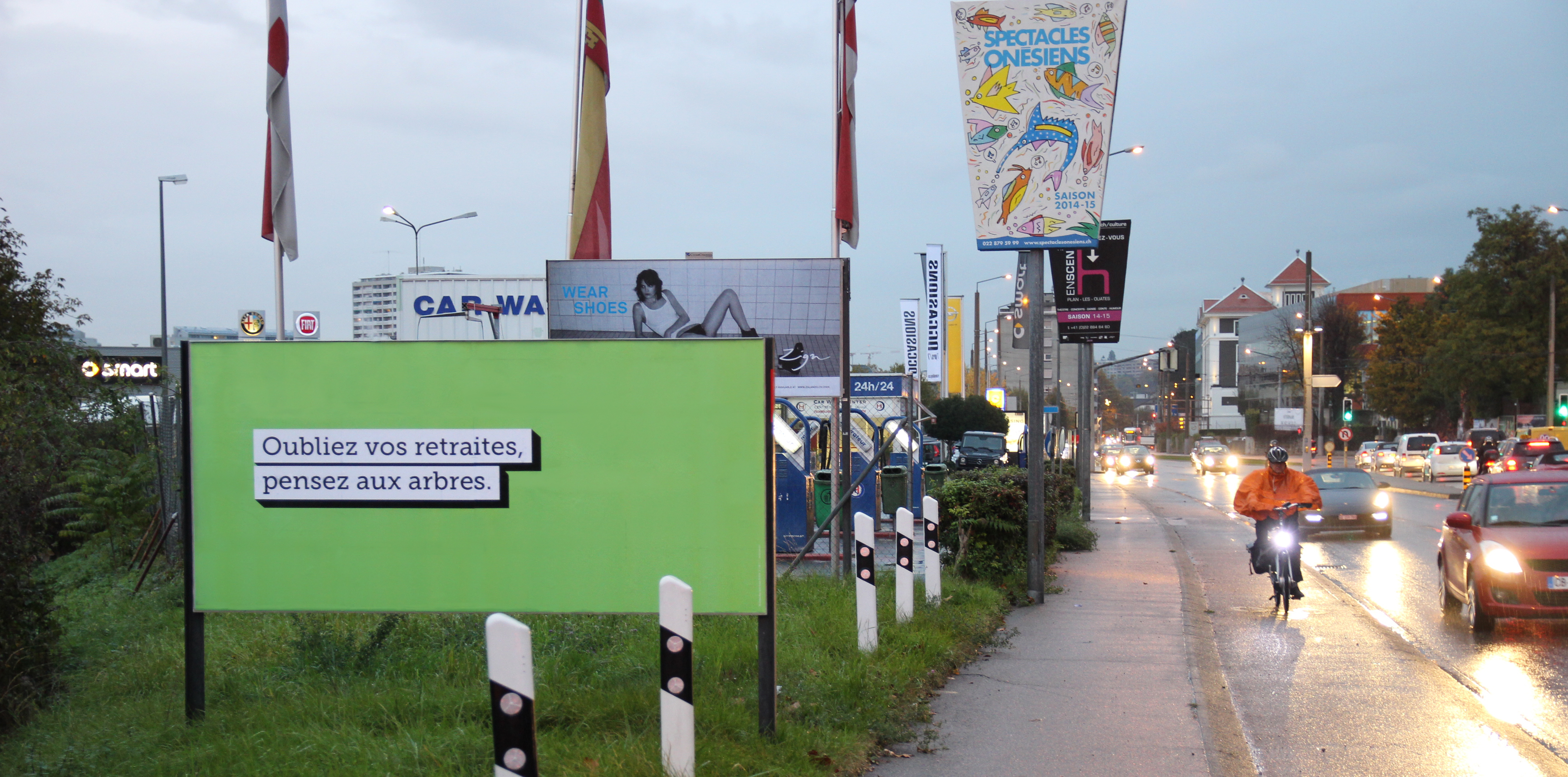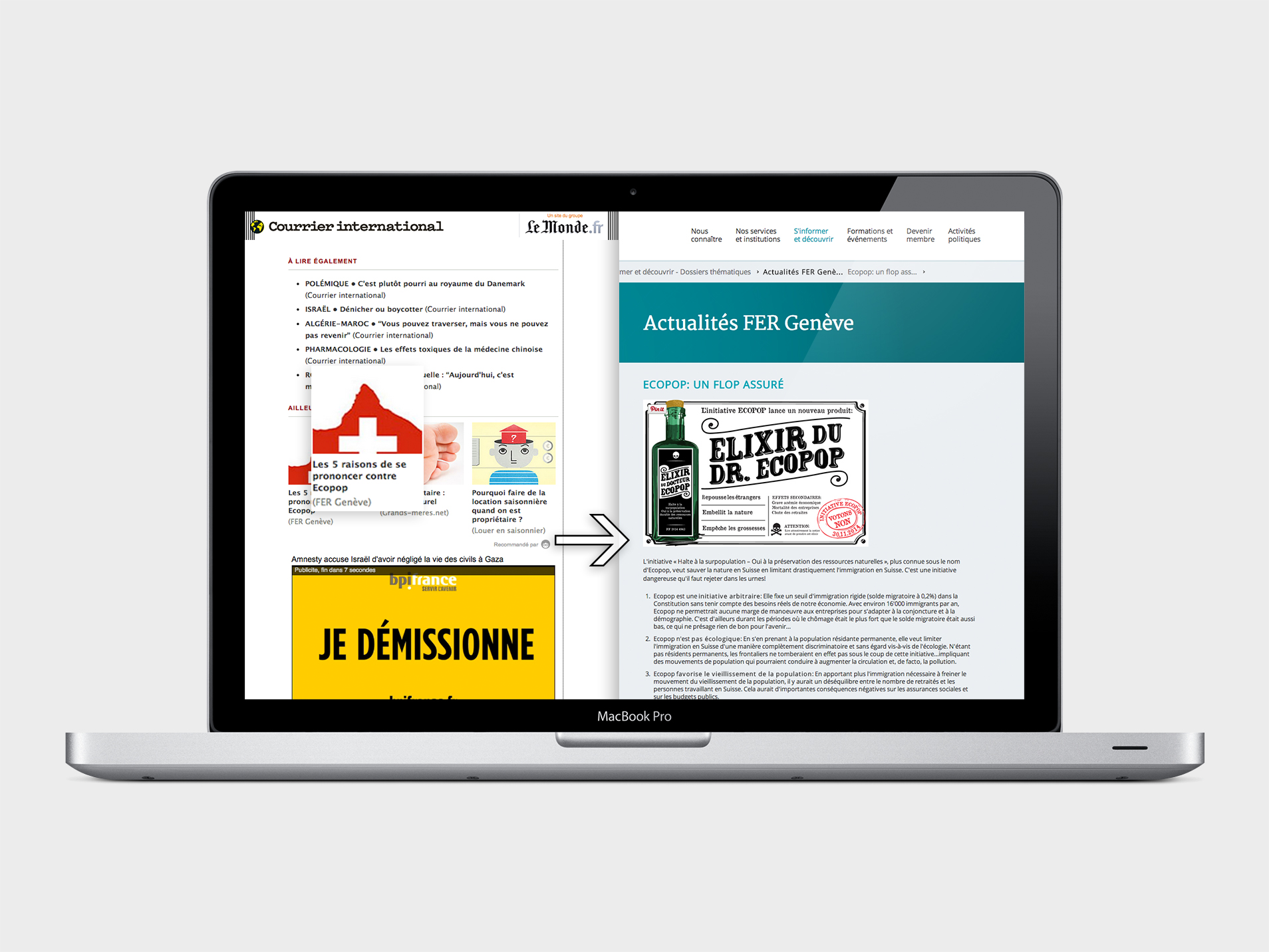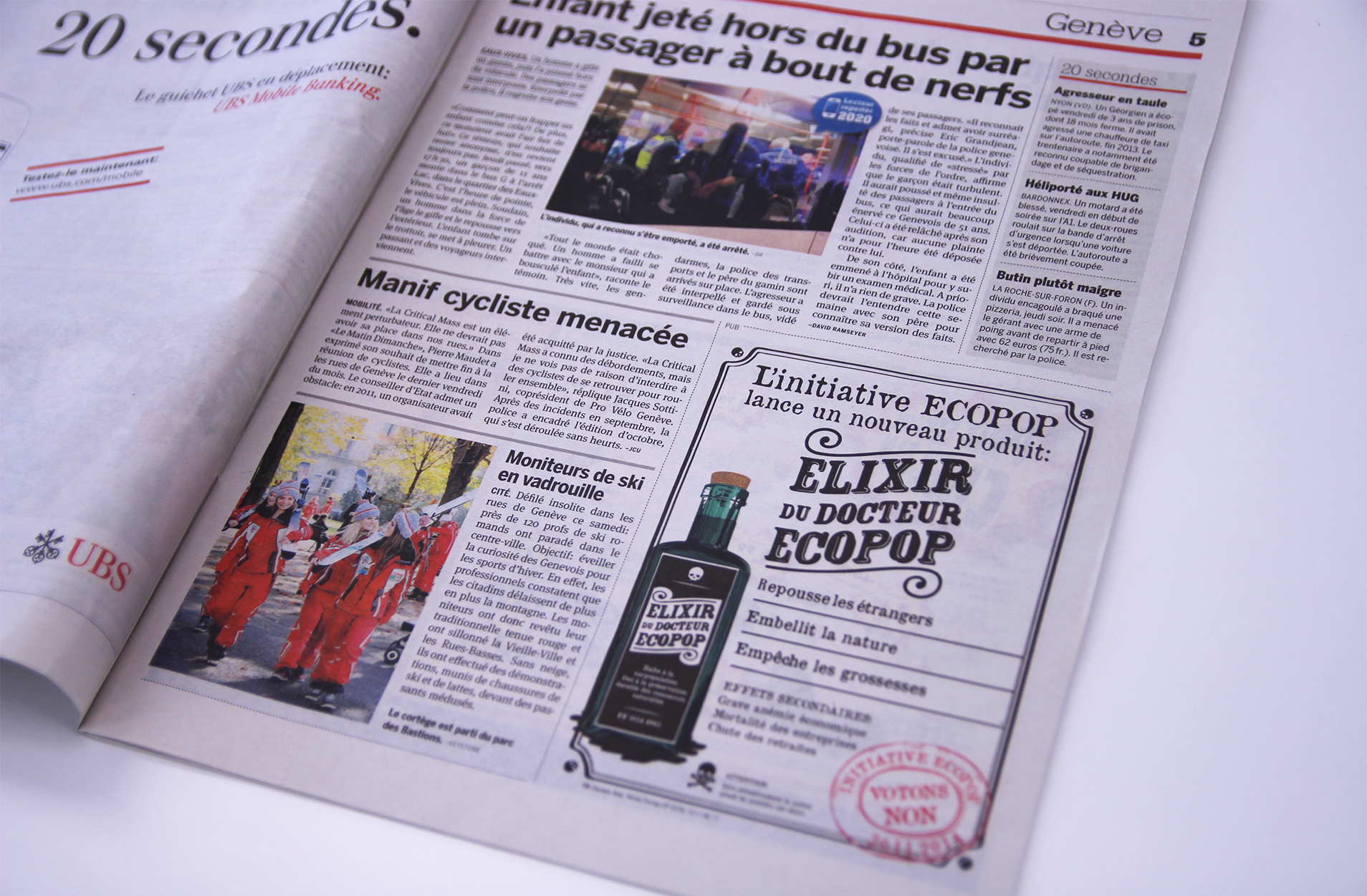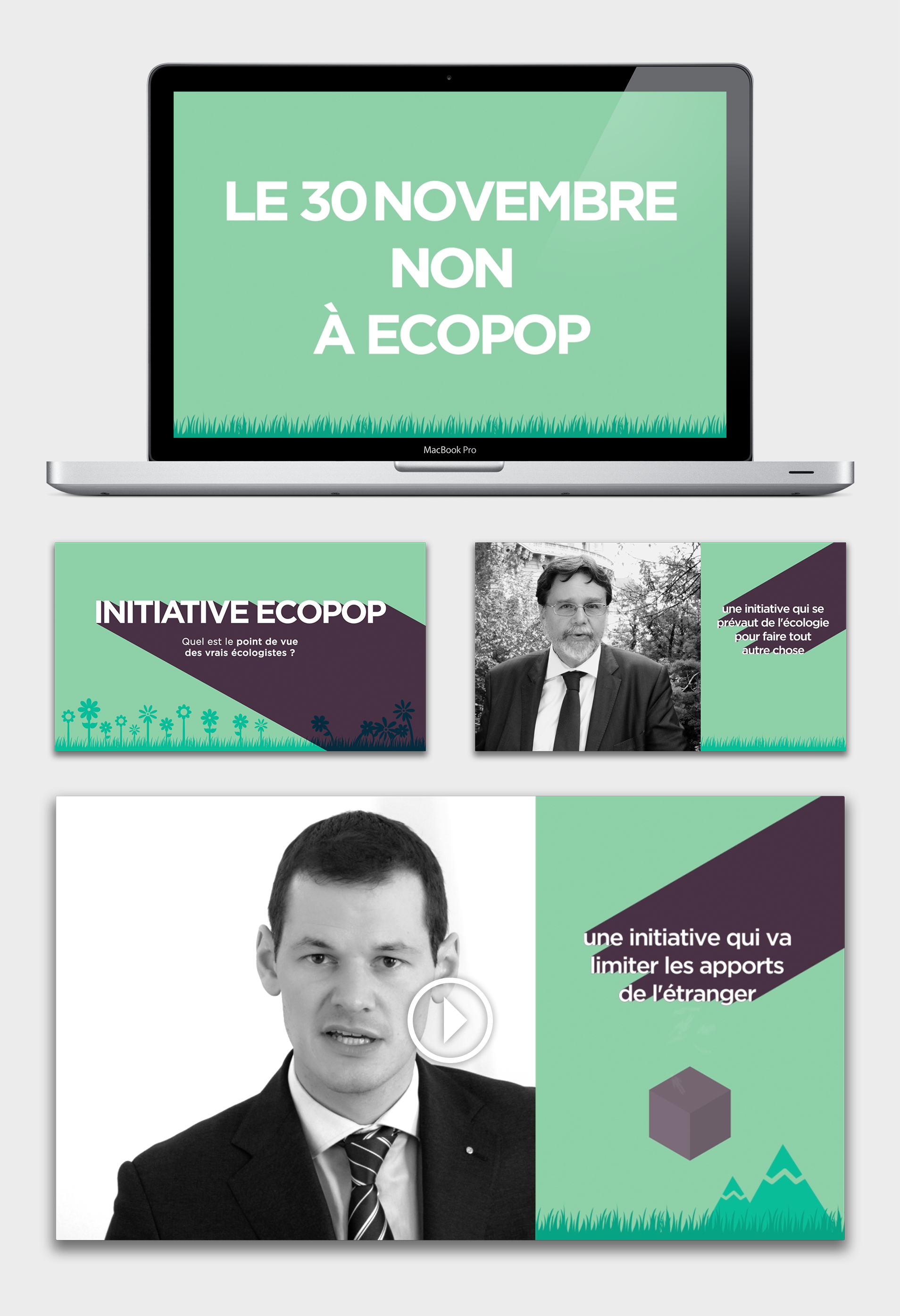
Campaign against the Ecopop initiative
Enigma the communication agency has been mandated by various institutions to elaborate a campaign against the Ecopop initiative.
Ambition
The initiative Ecopop, on which the Swiss people voted on 30 November 2014, required a punchy campaign, because its content was shocking.
The initiative claimed to preserve Switzerland’s natural resources; its actual aim was to address the country’s natural population growth. It proposed to reduce Switzerland’s immigration limit to 0.2 percent, or 16,000 people per year (this number would be insufficient to cover the economic needs of the small Jura region). This initiative wanted to return to the population density of the 1930s. Action had to be taken against the underlying racist ideology masquerading under the guise of ecological concern. With its cute and attractive name, this initiative could seduce a large part of the population.
All political parties officially opposed the initiative, and the number of proponents appeared small, but we desperately needed to avoid the “David v. Goliath” effect: a media campaign against the initiative could serve to make it look attractive. Its negative effects needed to be immediately apparent, and its seductive spell had to be broken. We couldn’t let the initiators speak directly, nor could our campaign become a forum for those favoring the initiative. We really had to use all possible means to highlight the ridiculous nature of this proposal.
Action
In order to raise maximum awareness among voters, we decided to maximize discussion forums, since the Zero Moment of Truth is different for each person. We created a billboard campaign, advertisements in the press, content amplification, and a number of online videos.
Billboards
We ran a 2-step billboard campaign. This began with a teaser, which showed shocking texts without naming a purpose or a source.
The texts were directly inspired by the initiative, and showed its significant and negative impact on the economy, the population, and Switzerland in general.
In order to reveal the initiative’s real aims, the following texts were used:
- a text showing the initiative’s deeply racist agenda
- a text showing its extreme economic impracticality
- a text showing its impossible demographic implementation
The campaign’s second step acted as a revealer: it unmasked the initiative’s identity and exposed its scope and ridicule. We added the following baseline: «If this were a joke, it would be bad enough.» Without mocking it directly, we emphasized the ridiculous nature of the text, and the gravity of the initiative.
Advertisement
To further show the absurd and deceptive nature of the initiative, we used an old-fashion design that echoed multiple references, among them charlatanism and 1950s ad design (since the initiative referred to 1950s-erapopulation). The design referenced charlatans that promised the earth and were entirely disconnected from reality. Such people caused more problems than they solved. We thus revealed the gravity of the initiative from a different perspective.
Amplification
We wrote an article posted on the FER website (Federation of Enterprises from Western Switzerland), that gave five reasons to vote against Ecopop. Headlines and images were A/B tested in order to optimize the click rate. With an amplification system that offered the article on three major online news outlets, we redirected new readers to this article and provided them a fresh perspective on the initiative.
Videos
We showed how the Swiss political scene was united against this initiative with videos of individual politicians, such as Pierre Maudet, Robert Cramer, and Céline Amaudruz.
We made their statement more dynamic and didactic by limiting it to thirty seconds. The videos were broadcasted on YouTube, and explained the real and serious consequences of the initiative for Switzerland. Robert Cramer offered an ecological perspective, Pierre Maudet an economic one, and Céline Amaudruz voiced the UDC party’s perspective.
Impact
On 30 November 2014, the initiative was rejected by more than 74 percent of voters in Switzerland and almost at 79% in Geneva. YouTube videos totaled more than 215,000 views within one month, and debates were very animated on the platform.
Without giving a public forum to the initiators, and by multiplying the arguments against this proposal, we managed to send the message that resulted in a substantial victory for the “no” campaign.

